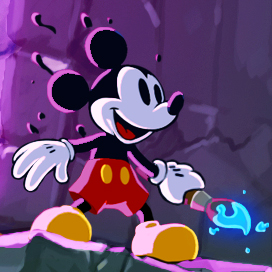It’s such a shame we don’t get many modern indie interpretations of these single-screen racers. There’s a clone on Wii U and Switch (and probably other platforms) called Rock 'N Racing Off Road DX which I played to completion even though it was buggier, uglier and less fun than Super Off Road just because I’ve already played SOR so much. The game crashed immediately after the final race and I promptly deleted it.
The last one I know that was really great was Konami’s super underrated Driift Mania for the original Wii. Great handling, fun tracks and colorful visuals made it one of my favorite WiiWare games, which sadly today means you can’t legally get it anywhere. The craziest feature was the 8-way multiplayer using four Wii Remotes and four Classic Controllers, so each player is tethered to another by the Classic Controller cable. Worth tracking down if you want to play a “modern” (14 years old, pff) single-screen racer.








Does EarthBound count? It’s sort of a sci-fi fantasy story which mostly takes place in a contemporary western setting (most of the game occurs in Eagleland, America filtered via Japan). There’s ancient evils, pay phones, psychic powers, a cafe, a bunch of zombies and a multi-level mall. Not all of the game is urban, with suburban, rural, swamp and alien areas, but there’s several cities to explore.